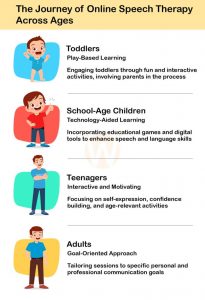The Complex Nature of Grief: A Guide to Healing
By Prapoorna M
Last Updated: November 27, 2021
Understanding the complex nature of grief can be a challenging process. This comprehensive guide explores the emotional, physical, and psychological aspects of loss. Discover the various stages of grief, effective coping mechanisms, and how to find support. Whether you’re grieving the loss of a loved one, a relationship, or a significant life change, this article offers valuable insights and guidance to help you navigate this challenging journey.
What is Grief?
Grief is an emotional response to loss, and it’s something we all encounter at some point in our lives. But it’s not just about sadness. Grief encompasses a wide range of emotions, from shock and denial to anger, guilt, and even moments of acceptance. It’s a process that can take many shapes, depending on the individual and the nature of their loss.
We often associate grief with the death of a loved one, but grief can stem from many types of losses. It might be the end of a significant relationship, the loss of a job, a change in health, or even a major life transition like moving to a new city. Each of these experiences brings its own form of grief because, at its core, grief is the reaction to losing something we deeply care about.
The nature of grief is universal, yet it’s also incredibly personal. While we all grieve, no two people will go through it in the same way. Some may experience intense waves of emotions, while others might process their grief more gradually. There’s no right or wrong way to grieve, and understanding that helps us be more patient with ourselves and others.
Also Read: Nature of Grief | How does grief end?
The Stages of Grief: Breaking Down the Process
One of the most well-known frameworks for understanding grief is Elisabeth Kübler-Ross’s 5 stages of grief. These stages help break down the emotional experience of loss, offering a way to understand what many people go through when they face grief. However, it’s important to remember that grief isn’t a linear process—people don’t necessarily experience these stages in a particular order, and not everyone will go through every stage.
Here’s a brief look at the 5 stages of grief:
- Denial
The first stage is often denial, where individuals may struggle to accept the reality of the loss. This is a natural defense mechanism, allowing the person to process the overwhelming emotions a little at a time. Denial can provide a sense of numbness, shielding the individual from the initial shock. - Anger
As the denial fades, anger may take its place. This can manifest in many ways—anger at oneself, others, or even the situation itself. It’s common to ask, “Why did this happen?” or “Why me?” during this stage. Anger often serves as a way to release the emotional pain and frustration tied to the loss. - Bargaining
In the bargaining stage, people often try to regain control over their situation, seeking ways to avoid or reverse the loss. This could include thoughts like “If only I had done things differently” or “I’ll do anything to bring them back.” Bargaining is often a way to cope with feelings of helplessness and vulnerability. - Depression
When reality fully sets in, sadness and depression can become overwhelming. In this stage, individuals may feel the weight of the loss more deeply. This sadness can be all-encompassing, leading to feelings of isolation, hopelessness, or even withdrawal from social activities. It’s a necessary part of the healing process, allowing people to face their grief head-on. - Acceptance
Acceptance doesn’t mean forgetting or being “okay” with the loss. Instead, it’s about finding a way to live with it. In this stage, individuals begin to adjust to their new reality and find ways to move forward, even though they may still carry the pain of the loss. It’s the stage where one learns to cope and continue living while honoring the memory of what was lost.
Read more: The stages that a grieving person goes through
Different Types of Grief
Grief, while universal, can manifest in many different ways. The emotions that come with loss vary from person to person, and there are several specific types of grief that people may experience depending on their situation. Understanding these types can help individuals recognize what they are going through and validate their feelings.
1. Anticipatory Grief
Anticipatory grief occurs when you start grieving before the actual loss takes place. This type of grief is common when someone is facing the terminal illness of a loved one or an inevitable life change. For example, caregivers often feel this type of grief while watching a family member’s health decline. Anticipatory grief allows you to begin processing the emotions tied to the impending loss, but it can also bring up complex feelings like guilt, fear, or helplessness. You may feel as though you’re “grieving twice,” once before the loss and once after.
2. Complicated Grief
Complicated grief, as the name suggests, is when grief becomes intense and overwhelming, to the point where it feels impossible to move forward. While grief is natural, complicated grief is different because it doesn’t ease over time. You might find yourself stuck, unable to resume your daily life or recover emotionally from the loss. This type of grief can last for months or even years, and may require professional support to work through. The pain and sorrow can feel never-ending, which makes it essential to reach out for help if you or someone you know is dealing with complicated grief.
3. Disenfranchised Grief
Disenfranchised grief refers to the grief that is not openly acknowledged or supported by society. This type of grief may occur in situations where the loss isn’t considered “worthy” of public mourning. Examples include the end of a relationship that wasn’t publicly known, the death of a pet, or even the loss of a job. People experiencing disenfranchised grief often feel isolated because their pain is not recognized or validated by others. This can make the grieving process even harder, as the person may feel they don’t have the right to express their grief openly.
4. Cumulative Grief
Cumulative grief occurs when you experience multiple losses in a short period of time, leaving you with little time to process each one. It’s like the emotional equivalent of being hit by wave after wave, without a chance to recover between. This type of grief can happen, for example, when someone loses several family members in close succession or when they experience job loss and health issues simultaneously. Cumulative grief can intensify the emotional toll, leading to feelings of being overwhelmed and emotionally exhausted.
Types of Grief
| Type of Grief | Description | Example Scenario |
| Anticipatory Grief | This type of grief occurs before the actual loss. It happens when an individual knows that a significant loss is coming, such as a terminal illness. The grieving process may begin while preparing emotionally for the inevitable. | A family member is diagnosed with a terminal illness, and loved ones begin grieving as they witness the decline in health. |
| Complicated Grief | Complicated grief, also called prolonged grief, is when the feelings of loss are intense and persistent for an extended period, disrupting daily life. Unlike typical grief, it doesn’t ease over time and may require professional help. | A person is still experiencing extreme grief, sadness, and inability to function months or even years after the death of a loved one. |
| Disenfranchised Grief | This type of grief occurs when the loss is not publicly acknowledged or validated by society, leaving the griever feeling isolated. People may experience this when the loss is less visible or socially recognized. | The loss of a pet, a miscarriage, or a secret relationship ending—situations where others may not fully understand the depth of grief. |
| Cumulative Grief | Cumulative grief happens when an individual experiences multiple losses in a short span of time, making it hard to process each loss fully before another occurs. This often leads to overwhelming emotions as each loss compounds the last. | A person loses several family members over a short period, or a person faces both job loss and a significant personal loss simultaneously. |
How Grief Affects Mental and Physical Health
Grief doesn’t just affect us emotionally—it can have a profound impact on both mental and physical health. When we lose someone or something dear, the emotional burden can become overwhelming, leading to a wide range of symptoms that can deeply affect our well-being.
The Emotional Toll of Grief
The emotional side of grief can be intense and varied. Many people experience feelings of anxiety or worry about what the future holds without their loved one or after their loss. This anxiety can manifest as restlessness, nervousness, or a sense of being on edge.
Depression is another common emotional reaction during grief. It’s not unusual to feel profound sadness, hopelessness, or a sense of loss that permeates daily life. The heaviness of depression can make it difficult to find joy in things that were once fulfilling. Some may experience feelings of isolation, choosing to withdraw from social activities or people they care about, which can deepen feelings of loneliness.
These emotional experiences are all part of the grieving process, but when left unaddressed, they can lead to more serious mental health issues. Recognizing the emotional toll and seeking support—whether through therapy, support groups, or loved ones—is vital to navigating grief in a healthy way.
Physical Symptoms of Grief
Grief also takes a toll on the body. Many people report feeling fatigue—a deep, lasting exhaustion that doesn’t go away with rest. This kind of fatigue can make it difficult to focus on daily tasks, let alone manage the responsibilities of life.
Other physical symptoms include headaches, which are often caused by tension or emotional strain. Some people may also experience muscle aches or a sense of physical tightness in their chest. Grief can also weaken your immune system, making you more susceptible to illnesses such as colds or infections. When the body is under emotional stress for an extended period, it has a harder time defending itself from physical ailments.
Recognizing these physical symptoms is crucial because it helps people understand that grief isn’t just “in your head.” It’s a whole-body experience, and taking care of both mental and physical health during grief is important for long-term healing.
Know more about on Causes, Risk Factors and the Ways to Cope Chronic Grief | Prolonged Grief
Why It’s Important to Seek Support During Grief
Grief is hard enough to handle on your own, and no one should have to go through it in isolation. Seeking support—whether it’s from a trusted friend, a therapist, or a grief support group—can make all the difference. Talking about your loss, sharing your feelings, and connecting with others who understand can ease the burden and provide comfort.
Sometimes, people hesitate to ask for help because they feel like they should “handle it” on their own. However, there is no shame in reaching out for support during a difficult time. In fact, recognizing when you need help is a sign of strength.
If you or someone you know is struggling with grief, it’s important to prioritize both mental and physical health. By seeking support and taking small steps toward self-care, the path through grief can feel less overwhelming.
Coping Mechanisms: Navigating the Grieving Process
Grief is a personal journey, and while the experience can feel overwhelming, acknowledging and embracing your emotions is an essential part of healing. It’s important to recognize that grief is not something to “fix” or avoid; it’s something to go through. Trying to suppress or deny your emotions often prolongs the pain, making it harder to heal. Instead, giving yourself permission to feel whatever comes up—whether that’s sadness, anger, or even relief—is the first step toward recovery.
Acknowledging Your Emotions
One of the most important aspects of coping with grief is recognizing and accepting your emotions as they come. Grief can bring up a wide range of feelings—sadness, frustration, confusion, or even moments of peace—and all of these are valid. It’s okay to have days when you feel fine and others when you feel deeply upset. Understanding that these feelings are normal allows you to process grief in a healthy way, without putting pressure on yourself to “move on” too quickly.
Healthy Coping Strategies
There’s no one-size-fits-all approach to coping with grief, but there are several strategies that can help ease the emotional burden and provide support during difficult times.
- Journaling: Writing down your thoughts and feelings can be a powerful way to process grief. Journaling offers a safe, private space to express emotions without judgment. It allows you to explore your thoughts and feelings at your own pace, helping to clarify what you’re going through. Some people find it helpful to write letters to the person they’ve lost, as a way to maintain connection and work through unresolved emotions.
- Talking to a Therapist: Grief counseling or therapy provides an opportunity to discuss your feelings in a supportive environment. A therapist can help you navigate the complexities of your emotions, offering coping techniques and insights that are tailored to your specific situation. Therapy can be especially helpful if your grief feels overwhelming or if you’re struggling with complicated grief.
- Joining a Support Group: Grief can often feel isolating, but it’s important to remember that you’re not alone. Many people find comfort in talking with others who are going through similar experiences. Grief support groups, whether in person or online, offer a space to share stories, listen, and gain perspective from people who understand what you’re feeling. Connecting with others can help you feel less alone and provide emotional support when you need it most.
Know more: How Online Therapy Supports Children Through Grief
The Role of Self-Care During Grief
Taking care of yourself during grief might feel like the last thing you want to do, but it’s crucial for your mental and physical well-being. Grief can drain your energy, and the emotional toll can leave you feeling exhausted. Self-care isn’t selfish; it’s an essential part of healing. Simple acts of self-care—whether it’s eating nutritious meals, getting enough sleep, or taking short walks—can make a big difference in how you cope with grief.
It’s also important to give yourself time and space to rest. Don’t feel guilty for stepping back from responsibilities or taking time for yourself. Grieving is hard work, and it’s okay to prioritize your emotional and physical health.
How to Support Someone Going Through Grief
Supporting someone who is grieving can feel challenging, but it doesn’t have to be complicated. Often, just being there is the most helpful thing you can do. Here are some simple tips to support someone during their grieving process.
1. Listen More, Speak Less
One of the best ways to support someone who is grieving is to listen. Let them share their feelings and memories, even if they cry or fall silent. Avoid trying to fix their pain or give advice. Just listen, and let them know you’re there for them. Sometimes, just sitting with them in silence can be the most comforting thing.
2. Offer Practical Help
Grief can make it hard for someone to manage day-to-day tasks. Offering to help with simple things like cooking, grocery shopping, or even walking the dog can make a big difference. Instead of saying, “Let me know if you need anything,” try something more specific like, “I’m bringing over dinner tomorrow, is that okay?” This makes it easier for them to accept help.
3. Be Careful with Your Words
It’s natural to want to comfort someone with kind words, but certain phrases can sometimes hurt more than help. Avoid saying things like “They’re in a better place” or “Everything happens for a reason.” These can sound dismissive. Instead, try saying, “I’m so sorry for your loss” or “I’m here if you want to talk.” Simple, genuine words can bring more comfort than you realize.
4. Be Patient and Understanding
Grief doesn’t have a timeline. Some days may be better than others, and that’s okay. Be patient with them as they navigate their emotions, and understand that they may need more time than you think. Don’t rush them to “move on.” Just let them know you’ll be there, no matter how long it takes.
Supporting someone through grief doesn’t mean having all the answers. It’s about being present, listening, and offering help when needed. Your understanding and patience will mean more than any perfect words.
Conclusion
Grief is a personal experience, and everyone goes through it in their own way. There is no right or wrong way to grieve, and it’s important to give yourself the time and space to feel the emotions that come with loss. Allowing yourself to grieve in a healthy way—whether that’s talking to others, finding comfort in activities, or taking quiet time for reflection—is key to healing.
If grief becomes overwhelming or lasts longer than expected, it’s important to seek help. This could be from friends, family, or a professional like a therapist. Reaching out for support is a sign of strength, not weakness, and can help you cope better.
Remember, healing from grief is a process. It may take time, but with support and self-care, it becomes easier to manage. Be kind to yourself, and allow the healing process to unfold at your own pace.
Frequently Asked Questions:
1. What are the stages of grief?
The stages of grief, as introduced by Elisabeth Kübler-Ross, include denial, anger, bargaining, depression, and acceptance. However, not everyone experiences grief in the same order, and some may not go through all the stages.
2. How does grief affect mental and physical health?
Grief can lead to emotional effects such as anxiety, depression, and isolation. Physically, it can cause fatigue, headaches, and a weakened immune system. It’s important to recognize both mental and physical symptoms of grief.
3. What are some healthy ways to cope with grief?
Healthy coping strategies include journaling, talking to a therapist, joining a support group, and practicing self-care. Allow yourself to express emotions and seek support when needed.
4. How long does grief last?
Grief doesn’t have a set timeline. It varies for everyone, and healing can take weeks, months, or even longer. It’s important to allow yourself the time to grieve without pressure to “move on.”
5. What should I say to someone who is grieving?
When supporting someone who is grieving, it’s best to say something simple like “I’m here for you” or “I’m sorry for your loss.” Avoid saying things like “They’re in a better place” or “You’ll get over it soon.”
6. What are the different types of grief?
There are several types of grief, including anticipatory grief, complicated grief, disenfranchised grief, and cumulative grief. Each type affects people differently and may require different approaches to healing.
7. What should I avoid saying to someone who is grieving?
Avoid saying phrases like “Everything happens for a reason” or “It’s time to move on.” These can feel dismissive. Instead, focus on offering support and letting the person express their feelings.
8. How can I support someone who is grieving?
Support someone grieving by listening, offering practical help (like cooking or running errands), and being patient with their process. Let them know you’re there for them, without overwhelming them with advice.
9. Why is seeking help important during grief?
If grief becomes overwhelming or lasts a long time, seeking help from a therapist or support group is important. It can provide guidance, emotional support, and tools to help manage grief in a healthy way.
10. How do different cultures handle grief?
Different cultures have unique mourning rituals and practices. Some cultures may hold celebratory events, while others might focus on quiet reflection. Community and family support often play a large role in the grieving process.
About the Author:
Prapoorna Mangalampalli
M.Sc., M.A., (Dual Masters in Psychology & English) – Counselor (6+ years of experience)
Prapoorna, with dual Master’s degrees in Psychology and English and over 6 years of experience, elevates human experiences through insightful counseling. She excels in online, marital, relationship, child, family, and career counseling. At Wellness Hub, she thrives in a team environment, valuing innovation, compassion, and client success.
Book your Free Consultation Today
Parent/Caregiver Info:
Client’s Details:
* Error Message









